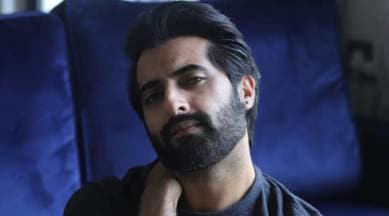Click here to follow Screen Digital on YouTube and stay updated with the latest from the world of cinema.

Pavan Kirplani’s latest suspense thriller Gaslight is the sixteenth film in actor Akshay Oberoi’s filmography, four being cameo appearances. But in these two decades of being in the acting business, commercial success has mostly escaped him, despite giving critically acclaimed performances. With Gaslight, he has once again won the appreciation of film critics, but the film has failed to draw appreciation in equal measures. Oberoi believes he will only “get access to more projects and more scripts” when he will not just deliver a good performance but also a “big blockbuster”.
Oberoi, who essays the role of Rana in Gaslight, says he is “not one of these big box office actors who have a big fan following.” In his opinion, he is surviving in the film industry because the critics have liked his work. But he understands only critical acclaim doesn’t get you better pay or roles.
“The only reason that I am surviving today is that critics have liked my work. My work is not that watched, there are a couple of things that are watched, but it doesn’t make for commerce. It is the numbers which matter the most, above and beyond anything. If a work is critically acclaimed but it doesn’t make any money, it doesn’t work for anybody. But, if it makes a ton of money and is critically bashed, everyone in that project gets more work, bigger work and everyone’s pay goes up. That’s the way it is structured,” the actor opines.
Oberoi finds the appreciation for Gaslight as “bittersweet” considering it hasn’t garnered plenty of views. He believes the film’s predictability hasn’t gone in its favour, “I think people thought the film is made very well in terms of its direction. It really clicked with people in technical terms. But murder mysteries are a difficult genre. It is important to tie up all the loopholes. However, some people found a lot of things that they knew were coming.”
Akshay Oberoi has starred in films like Pizza, Lal Rang, Gurgaon and Kaalakandi, which are all critically acclaimed, but not commercially successful. Even the films that have failed, Oberoi has been good in those. So, how does it always happen that he ends up picking up the wrong projects? He laughs and tells us, “I don’t know. You are hitting a nerve because I think about that myself. It’s absolutely right and I feel the same. It is something which is just a part of my destiny. This is not something that I can control. I have not directed any of these films. Of the work that comes to me, with the limited knowledge of life and understanding of cinema that I have, I pick the best.”
He adds that he is confident about achieving success, “All I can do is give it my best, work as hard as you can on a character, be there for your co-star every freaking day, and don’t regret anything. How the film does and how it is received is not in my hands. But I will get there. With the focus that I have and the hard work that I put in, it cannot not happen.”
Also, Oberoi is so confident about his craft that he is confident about leaving an impact even in smaller roles, like the ones in Piku, Ek Ladki Ko Dekha Toh Aisa Laga, and more. The length of his roles does not bother him as much as it bothers anyone else.
He says, “I have built my career on small roles, I did a small role in Piku, I did a small role in Fitoor, and I did a small role in Ek Ladki Ko Dekha Toh Aisa Laga. I have shows that I am leading, and those have come from doing these small things. Who doesn’t want to be the main guy on the set at all times, but I don’t feel I should not do something because of limited screen time. Pankaj Tripathi once told me that he doesn’t look at a role from the perspective of how big it is, but how big he can make it, and how he can change the destiny of that character. That has stuck with me. No matter how big or small a role is, you make it big by playing it.”
But Oberoi was not always as confident as he is today. Like any actor, he too has faced a lot of rejections. He suggests that acting is one career where a person faces the maximum rejections. “Rejection is a very big part of being an actor. Nobody tells you that when you start out. The most rejections any career faces, and it’s personal rejections; it’s not like the work that you have produced, it’s you, you don’t get cast. But if you don’t very quickly get a thick skin around rejection, you will not survive,” says the actor.
When he started his acting career, Oberoi barely got any work. He remembers giving his first audition for a Ketan Mehta film called Baiju Bawra, which never got made. He also recalls being rejected for Always Kabhi Kabhi (2011) and the role going to actor Ali Fazal. But he never let rejections bog him down and always told himself to ‘move on’. Now, his faith in himself has brought him to a position, where he doesn’t have to “give auditions with 20 different actors in a room. Now it has come down to competing with maybe three other actors.” However, he still gets rejected but he “keeps moving on and doesn’t give up”.
Click here to follow Screen Digital on YouTube and stay updated with the latest from the world of cinema.